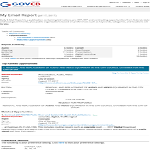PPS Afterschool Programs Evaluation RFP
| Agency: | Pittsburgh Public Schools |
|---|---|
| State: | Pennsylvania |
| Type of Government: | State & Local |
| NAICS Category: |
|
| Posted Date: | Mar 2, 2023 |
| Due Date: | Mar 23, 2023 |
| Bid Source: | Please Login to View Page |
| Contact information: | Please Login to View Page |
| Bid Documents: | Please Login to View Page |
Issuance Date: March 02, 2023.
The due date for proposal is March 23, 2023 @8:00am EST
The Request for Proposal (RFP) seeks qualified external evaluators to submit a proposal to evaluate ESSER funded PPS Afterschool Programs. The main purpose of the project evaluation will be to investigate the impacts of the Afterschool programs on addressing learning loss through the implementation of evidence - based interventions and how the interventions respond to students’ social, emotional, and academic needs that address the disproportionate impact of covid-19 on underrepresented student subgroups. The RFP includes detailed requirements for all proposal submissions.
Sign-up for a Free Trial, Government Bid Alerts
With Free Trial, you can:
You will have a full access to bids, website, and receive daily bid report via email and web.
See Also
Follow Worldwide Field Support Follow On Request for Information Active Contract Opportunity Notice
DEPT OF DEFENSE
Bid Due: 5/17/2024
Status Ref# Project Close Date Days Left Action Open City of Lancaster, Lancaster
Lower Merion Township
Bid Due: 4/23/2024
ADVERTISEMENT INFORMATION General Information Department for this solicitation: Procurement Date Prepared: 04/09/24 Types:
State Government of Pennsylvania
Bid Due: 4/30/2024
Housing and Economic Dev contract for Commerce Pro services RFP This work aims
City of Philadelphia
Bid Due: 4/26/2024
